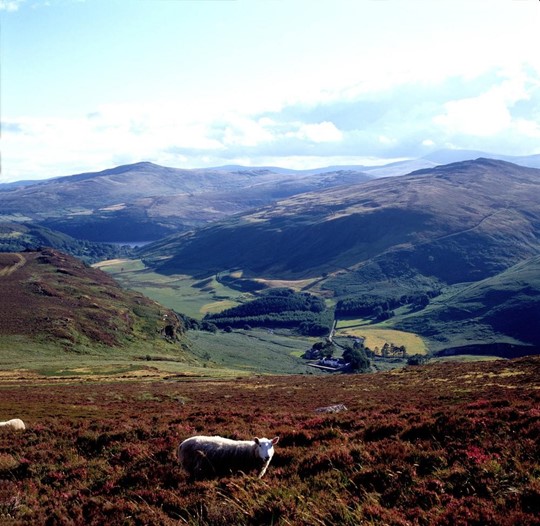
Researchers from UCD School of Geography have partnered with colleagues in Aberystwyth University and Dyfed Archaeological Trust to explore the potential for cultural and natural heritage-based tourism in the coastal upland areas of Wales and Ireland. They are working with two communities in Ireland and two communities in Wales.
Engaged Research
This project aims to work with communities to identify aspects of local heritage that they feel should be celebrated and communicated to tourists. Working together, CUPHAT seeks to create opportunities for communities to develop activities and experiences that encourage tourists seeking to explore the lesser visited coastal upland areas. This engaged research approach can lead to a more regenerative and sustainable form of tourism that works for the benefit of these areas.
The Project
The €3 million project – Coastal Uplands: Heritage and Tourism (CUPHAT) – is led by Aberystwyth, in partnership with UCD and the Dyfed Archaeological Trust, supported by the European Regional Development Fund through the Ireland-Wales Cooperation programme.
Led in Ireland by co-PIs from UCD School of Geography Dr Christine Bonnin and Dr Arlene Crampsie, the project will showcase unique aspects of the cultural and natural heritage of the Cambrian Mountains and Preseli Mountains in Wales, and the Wicklow Mountains and Blackstairs Mountains in Ireland in order to promote sustainable forms of tourism.
The project comprises several elements, including:
- Working with local communities and schools to record local histories and heritage
- Use of technology and citizen science activities to enhance visitor experience
- Creating a tourism network and marketing strategy
The initiative also aims to bring economic benefits. Specifically, the goal is to increase the number of tourists in these areas, their stay lengths and spending, by creating and expanding tourist focused activities and local businesses, to encourage community development projects and to support the retention of people and services within these areas.
Visit CUPHAT's website and follow them on Twitter.